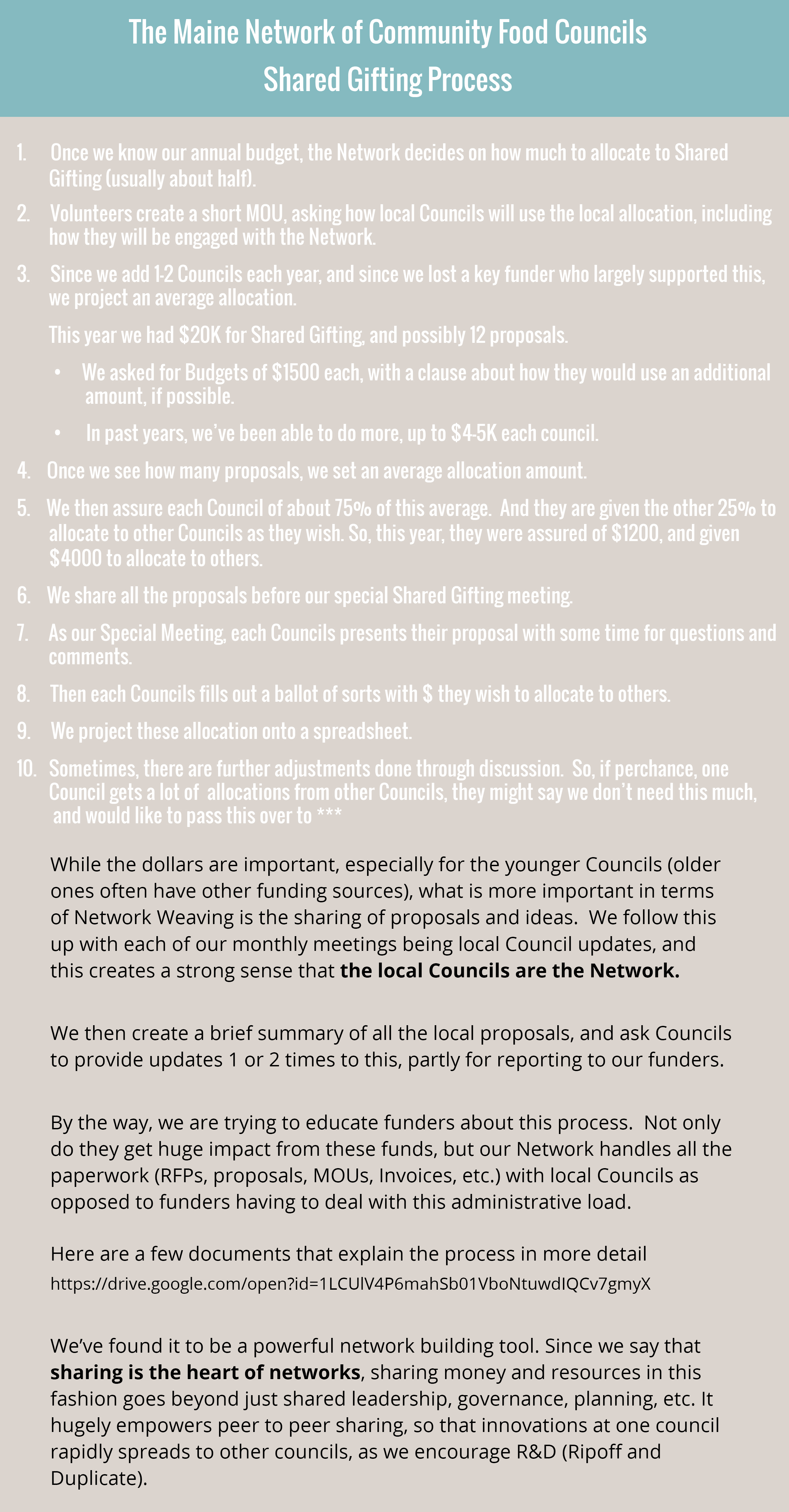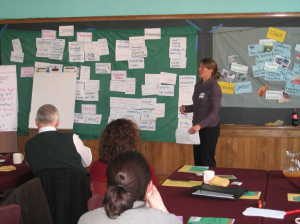Editor’s note: I’ve become more and more convinced that networks are much more effective when they are also part of networks with other networks, where they can share information, learn, support each other with challenges and organize larger collaborative actions especially policy change. We will have a series of blog posts in the coming weeks about the different types of networks of networks and steps in developing them.
Food system networks have been in the forefront of this development. Here Ken Morse describes the Maine Network of Community Food Councils.[ap_spacing spacing_height=”20px”]
Higher Level Network of Networks
I co-coordinate the Maine Network of Community Food Councils (MNCFC), made up of a growing number of community councils (currently 12, mostly multi-town) that act as local networks, with the Maine Network knitting these together in a Network of Networks.
For the last year, we have been organizing conversations with many other Maine groups with the idea of weaving together the over 100 groups, networks and non-profits working towards rebuilding Maine’s food supply. So a higher level Network of Networks, or you could almost say a Network of Networks of Networks.
We try to study biological models of organizations, seeing “networks” as a biological approach to social organization, much the way sustainable food systems are a biological alternative to industrial agriculture.
[ap_spacing spacing_height=”20px”]The Shared Gifting Process
One tool we have used within MNCFC is our Shared Gifting process. MNCFC is largely grant supported and we devote about half our budget to allocations to local councils, using a Shared Gifting process that we adapted from RSF Finance in California. All Councils submit proposals for this funding, all proposals go out to all Councils, then we have a special Shared Gifting meeting, where each council presents their proposals. Each Council is assured of funding for part of their work, and then have an allocation that they can share with other Councils. [ap_spacing spacing_height=”20px”]

[ap_spacing spacing_height=”20px”]Here are a few documents that explain the process in more detail.
[ap_spacing spacing_height=”20px”]Enriching Peer to Peer Sharing
This process mightily enriches the peer to peer sharing at the heart of MNCFC. Each Council learns about the work of the others, and then our meetings throughout the year are heavily focused on Community updates. Councils really begin to feel like they are the network, and innovation is greatly accelerated through replication of local initiatives across the Network.
We are interested in other network building tools like this. And in our “networks of networks” work, we are especially interested in questions of structure and communication ecosystems. And stories about how we can help folks who are somewhat stuck in organization or institutional frameworks to make the leap into network mindsets.
So, in any regard, we are delighted to be connecting with you and other national partners to dig deeper into this cutting edge work. [ap_spacing spacing_height=”20px”]
Ken Morse
Community Food Strategies
Co-Coordinator, Maine Network of Community Food Councils
Leadership Team, Maine Farm to Institution[ap_spacing spacing_height=”15px”]
Another wonderful resource Ken shared with me is a video call with four State Food Networks of Networks https://youtu.be/6wgIvqzHs8E. If would like to learn more about statewide food networks, also check out this article by University of Minnesota Extension on Cultivating Collective Action: The Ecology of a Statewide Food Network (2015)
